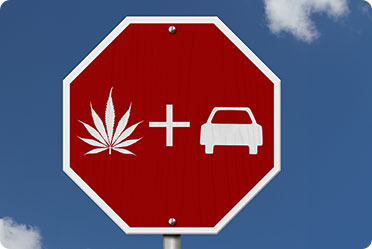
As medical marijuana is legal in almost half the states and as a small number of Americans are saying that they are in favor of recreational availability as well, the tensed medical researchers are making efforts to project the potential impact on public health problems ranging from addiction to cognition to traffic accident fatalities.
To answer the question that could easier access to marijuana decrease deadly car accidents is that according to a new study, traffic deaths in nine states, in which New Jersey is also included, is that high rates of toxicology testing is admittedly hazy.
In the journal Injury Epidemiology, it is written by the author, “Increased availability of marijuana to young adults in U.S. states that have passed medical and recreational use allowance may have positive spillover effects on alcohol, reducing use to some degree among young adults”. They are hesitant to say that may not decrease traffic fatalities.
A high number of individuals die due to alcohol than the number of individuals who die by any other drug but the theory has to do with how 2 goods interact: “When one substance becomes more legally accessible, what happens to the prevalence of other substances?” asked the authors.
In economic terms, if 2 goods are complements, then demand for one increases with availability of the other. If they are substitutes, the opposite occurs. Findings from the researches that happened in the past on the relationship between alcohol and marijuana have been mixed.
For their new study, the Columbia University scientists examined toxicology data for 7,191 individuals who were in the age limit between 16 to 25 year and who died within 1 hour after the accidents that happened between 1999 and 2011. Almost 37 percent had alcohol in their system, 6 percent for marijuana, and 8 percent for both.
The analysis looks at how those proportions altered according to age and particularly the one variable that consistently affects availability of alcohol: turning 21.
Alcohol use increased 14 percent after age 21 as compared with cases that had not reached the age and marijuana use decreased 24 percent, showing that the substances are substitutes. But the trend was up by 22 percent among drivers who had both drugs in their systems, pointing to a complementary relationship there.
Another problem in this study is that the independent variable was the legal drinking age.
According to lead author Katherine Keyes, an assistant professor at Columbia’s Mailman School of Public Health who studies substance-abuse epidemiology, “This shows the impact of alcohol on marijuana, not necessarily marijuana on alcohol. It is suggestive”.
Although Washington was one of the states studied, all the data were gathered long prior to the first recreational pot went on sale there last summer. Colorado, where business has been booming for a year, was not included in the study. Researchers are looking at it now, however.
In the month of October, Gallup reported that the public opinion on marijuana has been changed immediately with 51 percent of Americans favoring legalization. Although recreational use has been legalized in only the 2 states, medical use is permitted in 23 states in which New Jersey is included.
In Pennsylvania, a medical marijuana bill overwhelmingly passed the Senate before failing in the House in 2014. The new House Majority Leader, David Reed (R., Indiana), was co-sponsor of a version of the bill in the House. Gov. Wolf is in favor of legalization for medical use.
The new research paper, while suggesting an increase in marijuana use could lead to a slight decrease in fatalities that occur due to alcohol, notes many other factors must be considered and the net result “may be null or even detrimental for fatality rates overall”.
Highly potent marijuana can be just as dangerous on the highway, for example and strong demand would likely mean more individuals driving high. Once the drug is legalized, state regulators have some control over both.
Keyes added, “The way laws are implemented are going to matter a lot”.
Among drivers between the ages of 16 to 25 years old who died in car accidents, age was a key predictor of drug use. Compared to young aged drivers, there was less possibility of those 21 years old to have used marijuana alone but more likely to have used it with alcohol:
- Alcohol only +14%
- Marijuana only -24%
- Combined use +22%
News Source: www.Philly.com
Leckerman Law focuses on safeguarding the
rights of individuals charged with DUI, DWI, DAI, and
other alcohol-related criminal offenses - Call Us Now For
NJ DWI (856) 429-2323 | For PA DUI (215) 496-9292